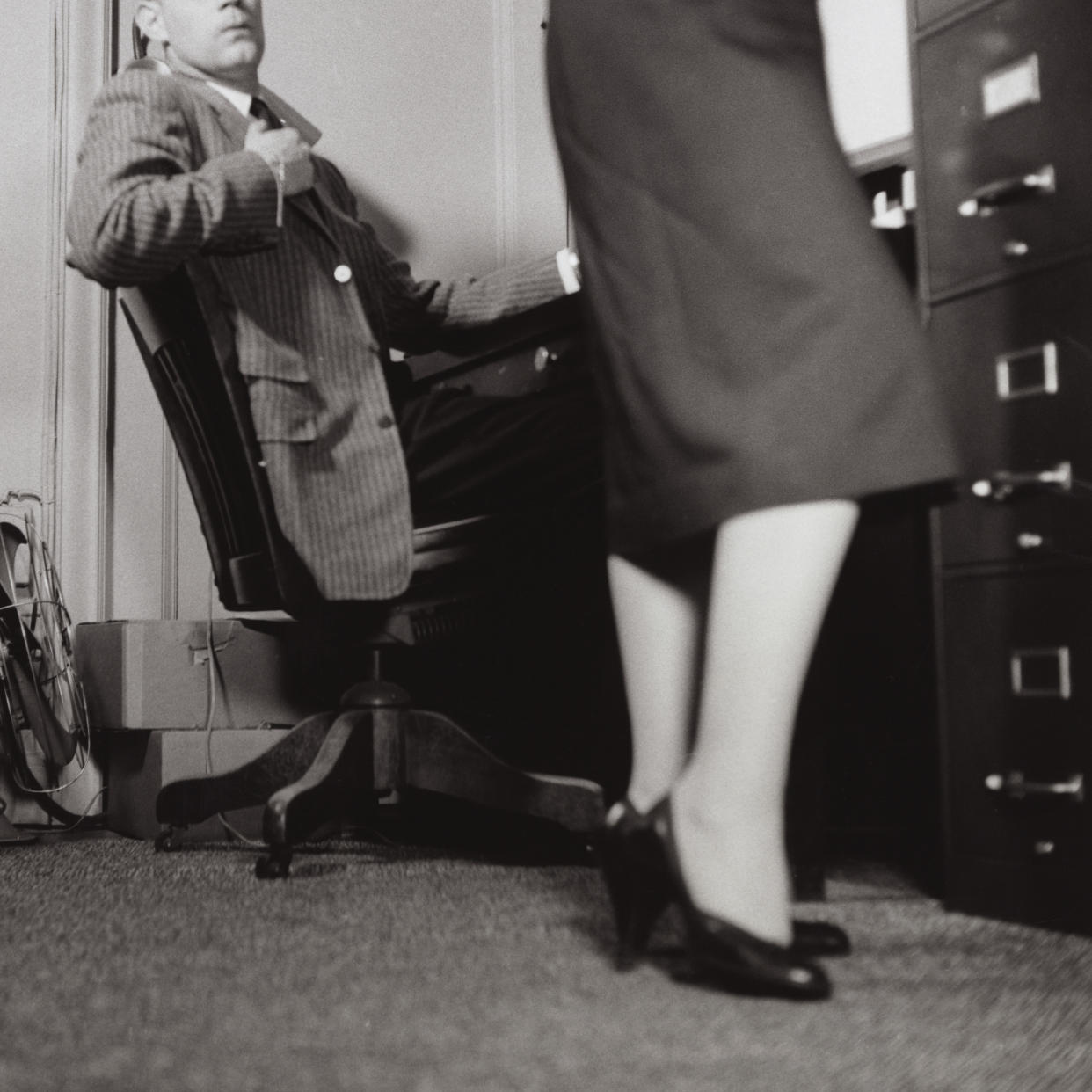Here's why only 30 percent of women report sexual harassment to HR

When news of Matt Lauer’s firing broke Wednesday morning, NBC News Chairman Andrew Lack told employees the complaint that precipitated Lauer’s ousting was “the first complaint about his behavior in the over twenty years he’s been at NBC News.” And yet, within the next 24 hours, two separate reports were published — one in Variety, the other in the New York Times — with quotes from four women accusing Lauer of harassment and — in at least one instance — assault. So why, then, didn’t any of these women report the incidents to human resources?
Turns out, keeping such workplace offenses quiet is incredibly common. According to a 2016 report from the Equal Employment Opportunity Commission, up to 85 percent of women have experienced sexual harassment in the workplace, and 70 percent of those who have been subjected to sexual harassment don’t report it to HR.
“The statement that no complaint had been made against Matt Lauer in twenty years rang very empty to me,” says Lauren Edelman, a professor of law and sociology at University of California, Berkeley and the author of Working Law: Courts, Corporations and Symbolic Civil Rights. Just because women didn’t log complaints doesn’t mean it wasn’t happening, she tells Yahoo Lifestyle. “Women in general are very reticent to file any kind of HR complaint. In some cases, the complaint procedures in a company are not adequately publicized, or there’s a culture at the company that makes people feel it would be futile to file a complaint. They might know people who did so and had a bad experience. And the vast majority of women who experience harassment still feel like it’s just part of the job, and they need to endure it in order to succeed. They don’t want to seem like complainers, and would rather seem like a survivor of harassment than a victim.”

Oftentimes, in cases that are less clear-cut than those of Lauer, Harvey Weinstein, Louis C.K., and Charlie Rose, women aren’t even sure that what they experienced was in fact sexual harassment, says Grace Choi, co-founder of BetterBrave, a resource website for victims of sexual harassment that was founded in the aftermath of Susan Fowler’s experience at Uber.
“They don’t know if it was harassment; they just know they were uncomfortable,” Choi tells Yahoo Lifestyle. There is also a strong distrust of HR by employees, Choi says. “A victim of harassment might not believe that HR will take steps to protect them because they ultimately work for the company. There are also plenty of instances when a target of harassment is removed from their team to ‘protect them,’ instead of removing the harasser. That sends a message that if you complain, you will be targeted.”
These concerns are often warranted, says David Lewis, CEO of the HR consulting firm OperationsInc, who has worked in HR for 31 years. But Lewis adds that the onus of responsibility is ultimately on company leadership rather than the HR department. “Human resources is a function of management,” he tells Yahoo Lifestyle. “The finger, in my opinion, should be pointed at leadership, who sets the culture, as opposed to HR, who is only in a position to act when they are empowered to do so.”
“Many HR people take sexual harassment claims seriously, but the human resources department is part of the management structure,” Edelman points out. “They are paid by management; their promotion possibilities are part of the management hierarchy. They are not the neutral arbiters of disputes you would find in a courtroom.”
When an employee logs a formal sexual harassment claim with HR, Lewis says, the standard operating procedure is for HR to initiate an investigation, which entails interviewing the accuser to understand the circumstances of the event, interviewing witnesses, and talking with the accused party. At that point, Lewis says, “The company becomes judge and jury. ‘What do we make of the account, is there validity, and assuming there is, what do we do?’ There is no law or specific handbook that says ‘inappropriate comment equals sexual harassment training’ or ‘hand on somebody’s butt equals getting fired.’ And even when HR has a recommendation for what should happen to the accused, it’s ultimately management’s call. It’s not that HR people don’t know how to handle these things, but once they make their recommendation, they lose control. What happens to the employee is not usually their decision.”
Lewis points to Fox News and Gretchen Carlson’s case as a perfect example. “All the accounts suggest there was little interest at the top in corralling and controlling the key offenders who set the culture,” he says.
Carlson herself has said that HR may not be the ally victims are looking for. “Are they really your friend?” she asked in an interview with CNN Money, highlighting an issue she covers in her recent book, Be Fierce: Stop Harassment and Take Your Power Back. “No, because they’re being paid by the company.”
And if your complaints are against a high-profile or high-earning individual, HR might even discourage an investigation, Edelman says. “There has been a tendency of many HR professionals of discouraging women from filing complaints, saying that what they experienced is not really harassment,” she says. “They don’t want to lose high-value employees or employees who are bringing in a huge amount of money, as was the case with Bill O’Reilly.”
So what needs to change? “HR needs to take more swift action, and worry less about the company and more about the harassment,” Edelman says. “They should also understand that harassment is really bad for productivity. Women experiencing this cannot work to their potential. I think if HR starts to realize that harassment is bad for the organization and for productivity, maybe they will be more attentive to creating a culture in which harassment is not allowed instead of looking the other way and pushing complaints aside.”
That shift has started, she says. “I think we are definitely in a moment of change. Companies are starting to realize that allowing harassment to go on is not a viable option,” Edelman says. “But also, I’m not sure how much this will pervade across organizations. We are seeing it with a lot of very prominent men so far. Will all this make a difference in a U.S. steel company in Iowa? I don’t know.”
Lewis is optimistic that today’s flood of high-profile sexual harassment stories has compelled companies to start taking claims seriously. Inquiries to his agency from other companies about sexual harassment training or harassment investigations are up 400 percent over the last eight weeks. “We’re talking about a lowering of tolerance and a heightening of awareness,” Lewis says. “That’s all we can hope for, and we’re there.”
Read more from Yahoo Lifestyle:
Women are adding ‘Mrs.’ to their LinkedIn titles to avoid unwanted sexual advances
Matt Lauer: 4 times he interviewed people about sexual harassment this year
Follow us on Instagram, Facebook, and Twitter for nonstop inspiration delivered fresh to your feed, every day.

